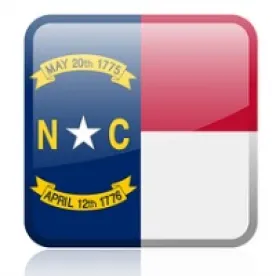Last week (well, two weeks ago, I'm kind of behind) seemed like class action week at the Business Court. Judge Gale issued three rulings in class action cases.
Two of the rulings were in consolidated class actions that had been settled. Those were in In re Pike S'holders Litig., 2015 NCBC 89 and 90. The third decision was in a case just at its commencement: Raul v. Burke, 2015 NCBC 91, about whether the plaintiff challenging a merger transaction was entitled to expedited discovery on her claims.
In The Pike Order, The Court Awarded Twice The Amount Of Fees Which The Defendants Had Agreed To Pay
There''s not much worthy of note in the first Pike "decision." It is merely an Order approving the settlement cut in the four separate class action lawsuits attacking Pike's merger.
The decision in the second Pike case, In re Pike S'holders Litig., 2015 NCBC 90, concerned an award of attorneys'' fees to the lawyers for the class. The case is notable since the class' lawyers were awarded doublethe amount of fees ($550,000) than the amount which the Defendants' lawyers had agreed not to oppose ($275,000).
How did the Plaintiffs' lawyers pull that off? They had to first get past the Defendants' argument that the Court did not have the authority to award fees in excess of the amount that they had agreed not to contest. That argument was pretty much foreclosed by the language of the Memorandum of Understanding which led to the settlement. It said:
[i]f the parties are unable to reach agreement with respect to the amount of such attorneys' fees, costs, and expenses to which Plaintiffs' counsel are entitled, then Plaintiffs reserve the right to submit an application for an award of attorneys' fees, costs, and expenses to be paid to Plaintiffs' counsel (the "Contested Fee Application"). . . . In the event of a Contested Fee Application, Defendants agree to pay whatever award of attorneys' fees, costs, and expenses that the Court awards.
Op. ¶17.
Judge Gale, relying on the COA's recent decision in Ehrenhaus v. Baker, held that:
when the parties agree to fee shifting but do not agree on the amount of fees to be awarded, the Court may award the amount that it determines to be fair and reasonable.
Op. ¶29.
The Court assessed the reasonableness of the half million dollar plus fee by breaking the fee down to an hourly rate (for the 1394.60 hours of time) of $550 per hour for lead counsel, $375 per hour for partner hours of non-lead counsel, and $250 per hour for associate time. Op. ¶37. Judge Gale said that those rates were "within, but at the higher end of, the range that this Court has found to be reasonable for complex business litigation in North Carolina." Id.
The Court Awarded Fees Based On "North Carolina Rates"
Out of state lawyers looking to take on class action cases in the Business Court might want to take caution from this part of Judge Gale's ruling:
the affidavit of Lead Counsel [who was from Pennsylvania] reflects billing rates that exceed those typically charged in North Carolina. The Court believes that there are North Carolina lawyers who are fully capable of pursuing similar litigation and, thus, that it would be unnecessary and inappropriate to apply billing rates higher than those typically charged by skilled counsel in North Carolina.
Op. ¶36 (relying on GE Betz, Inc. v. Conrad, ____ N.C. App. __, 752 S.E.2d 634, 657 (2013).
This Was A "Disclosure-Only" Settlement
Also significant was that this doubling of attorneys' fees came in a disclosure only settlement. Judge Gale expressed this view regarding this type of settlement :
[t]he Cpurt is mindful of substantial commentary that disclosure settlements might often reflect more of a tax cost of a merger transaction rather than a meaningful substantive benefit to the settlement class, particularly when the accompanying release is the broadest possible. Those considerations perhaps underlie the Delaware Court of Chancery's recent caution that fee requests in disclosure-only settlements may now face more searching scrutiny, particularly when accompanied by the broadest possible releases. See In re Riverbed Tech., Inc. S'holders Litig., C.A. No, 10484-VCG, 2015 Del. Ch. LEXIS 241, at *21-22 (Del. Ch. Sept. 17, 2015).
Op. ¶39.
The Court found that the supplemental disclosures obtained by the class plaintiffs could not "be fairly characterized as 'routine'" and that they "were clearly required to correct prior material disclosures that erroneously described circumstances related to negotiations between the corporation, its CEO, and its suitor." Op. ¶41.
Expedited Discovery Denied In Class Action Attacking Ecolab's Acquisition Of Swisher Hygiene
It is common in litigation involving merger transactions for the plaintiff to ask for expedited discovery. Often, there is a rapidly approaching date for a shareholder vote to approve or disapprove of the transaction, and the class representative seeks to develop evidence which will warrant an injunction preventing the vote.
In Raul v. Burke, 2015 NCBC 91, the Plaintiff was attacking the sale of Swisher's assets to Ecolab for $40 million in cash. With a shareholder vote only a week away (set for October 15th), The Business Court denied a Motion for Expedited Discovery (on October 8th).
Plaintiff''s argument was that the disclosure of the transaction did not disclose how much of the $40 million sale price would be distributed to Swisher shareholders. The proxy statement stated repeatedly that the management and directors of Swisher could not reliably estimate any shareholder distribution. Op. ¶12. In fact, it said that "[w]e can provide no assurance as to if or when such distribution will be made." Op. ¶11.
Where is all of that $40 million going? Well, Swisher is in financial trouble, facing "continuing recurrent losses." Op. ¶13. Its accountants have issued an opinion with a "going concern" qualification. Op. Par. 13. Moreover, there is a criminal proceeding ongoing in the Western District of North Carolina regarding accounting irregularities. Op. ¶9.
The Proxy Statement says that:
[t]he balance of the proceeds will be retained to pay ongoing corporate and administrative costs and expenses associated with winding down the Company, liabilities and potential liabilities relating to or arising out of our outstanding litigation matters, any fines or penalties and other costs and expenses relating to or arising out of the USAO/SEC inquiries, and potential liabilities relating to our indemnification obligations, if any, to Ecolab or to current and former officers and directors.
Op. ¶11.
The Court said that it had to balance the substantiality of the Plaintiff's claim against the harm or burden that might be imposed on the Defendant if it had to go through the expense and "potential business delay" that would result from expedited discovery. Op. ¶7.
Given that Swisher had no other possible prospects in sight (like another potential buyer), and that there was real risk in delaying the transaction (Ecolab was entitled to walk from the deal without penalty if it did not close by December 31, 2015), Judge Gale denied the Motion for Expedited Discovery.
The Court's Didn't Disapprove Of Certain Deal Protection Devices
In the course of the opinion, Judge Gale rejected Plaintiff's argument that some of the "deal protection" devices (provisions designed to protect the potential acquirer from having to deal with a competing bid) built into the deal were improper. He said that:
a termination fee of less than four percent, a prohibition on affirmatively soliciting additional offers, and a prohibition on providing a potentially higher bidder any information without first advising Ecolab [were]. . . of a nature that Delaware law would indicate to be a reasonable protection of the transaction, and that the provisions do not unfairly preclude the potential for Swisher to pursue a more attractive bid.
Op. ¶16.
I wouldn't view that statement as a ringing endorsement of those types of deal protection provisions, but they are unlikely to be useful grounds for challenging a transaction in future cases.




 />i
/>i
